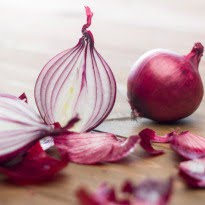
With summer in full swing, so are your cookouts. While beef and chicken may be a staple on grills everywhere, have you ever considered trying bison meat? Bison is native to North and South America as well as Europe. Traditionally, bison was an essential part of the Native American diet in the Wild West.
Myth: Bison meat is unhealthy.
Fact: Bison is rich in flavor, low in fat and high in protein. According to the United States Department of Agriculture, bison is lower in calories and cholesterol than beef, pork, turkey and skinless chicken. Bison also contains higher amounts of protein, iron and vitamin B-12 than beef, pork, chicken and salmon. Several university studies have shown that bison has an excellent ratio of Omega-3 to Omega-6 fatty acids and contains more conjugated linoleic acid than previously known.
Myth: Bison contains added substances that could be harmful.
SEE ALSO
Fact: Bison meat is 100 percent grass-fed, meaning they spend their lives on grass and very little time in the feedlot. The National Bison Association strongly opposes the use of questionable drugs, chemicals and hormones, creating bylaws to protect the use of substances in the production of bison meat.
Myth: Bison meat doesn’t taste good.
Fact: Bison meat tastes similar to high-quality cattle beef. The taste is often slightly sweeter and more tender than other types of red meat. Bison is cooked similar to beef, however, due to the lower fat content, bison cooks faster with less shrinking compared to beef.
Myth: I can only buy bison in the western part of the United States.
Fact: Bison meat can be found anywhere in the U.S. Many local grocery stores in Jacksonville stock fresh and frozen bison meat daily. You may also purchase bison meat online through many bison farms across the country. For a complete list of bison online retailers, visit www.bisoncentral.com/buying-bison-item/online-retailers/.
Myth: Bison meat is too expensive.
Fact: On average, bison meat will cost more per pound than cattle beef. However, when comparing nutritional profiles between bison, beef and poultry, you’ll find that you’re getting more nutrition per pound with bison. Since bison doesn’t shrink during the cooking process, you end up with more product for consumption.
The Goods is a monthly column about food myths and facts by faculty members in the University of North Florida’s Nutrition and Dietetics Flagship Program. Have a question about bison meat? Contact Snyder at [email protected].










